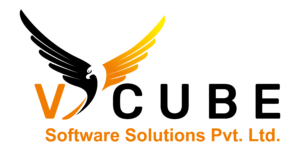MULESOFT INTERVIEW QUESTIONS PART 1
Interview Questions
1.What is MuleSoft?
- MuleSoft is a cloud and on-premise integration platform for connecting enterprise and SaaS applications.
2. List types of variables in MuleSoft
- Variables in MuleSoft can be of the following types:
• Flow Variable: It is used to set or remove variables associated with a specific message in the current flow.
• Record Variable: This variable is used in batch processing flows.
• Session Variable: This variable is used to set or remove variables associated with a specific message throughout the lifecycle.
3. What are the various types of messages in MuleSoft?
- MuleSoft has three different types of messages:
1) echo and log messages,
2) bridge messages,
3) build messages.
4. Explain Mule ESB
- Mule ESB is a programming-oriented architecture. They can use the bus-like infrastructure to connect a variety of applications. Mule ESB supports HTTP, web services, JMS, and other protocols.
5.What is fan-in?
- Fan-in aids in deciding whether or not to continue with flow execution. It should be used in conjunction with the fan-out technique.
6.What is a fan-out?
- Fan out is a primitive that can be used to input messages once or multiple times through the output terminal. It can also be used as a hybrid of fan-out and fan-in techniques.
7. Mention the features of Mule ESB
- Mule ESB has the following features: • Provides SLA (Service Level Agreement) monitoring and API management.
• It has a drag-and-drop graphical design that is simple to use.
• Mule ESB has a lot of scalability.
• It allows developers to deploy cloud or on-premise applications in a single click.
8. Mention the basic principles of ESB Integration
- The following are the fundamental principles of ESB integration:
•Transport: It negotiates between various formats such as JDBC, HTTP, JMS, and others.
•Transformation: It is responsible for transferring data between the various data formats required by the ESP connector.
•Non-functional consistency: This refers to how monitoring and security policies are implemented and should be consistent.
•Mediation entails providing various interfaces to:
1. Allows different channels to implement the same component.
2. Backward compatibility is ensured by supporting multiple service versions.
9. What is Mule Expression Language?
- Mule Expression Language (MEL) is a lightweight mule-specific language for accessing and evaluating data in the payload.
10. Mention different types of Exception Handling
- •Rollback exception handling is one type of exception handling.
•The default handling of exceptions.
•Handling of exceptions.
•Handling of global exceptions
•Exceptions can be handled in a variety of ways.
11. What are the advantages of using ESB?
- The following are some of the benefits of using ESB: •It provides a high level of operational control from a web-based portal.
•ESB uses SaaS-based applications to provide a variety of connectivity options.
•It allows you to manage APIs and analytics.
•ESB has several bug-fixing and automated testing capabilities.
•B2B (business to business) and EDI (Electronic Data Interchange) integration.
•A feature for batch integration using real-time integration methods.
12. What is a transient context?
- The values are passed within the existing flow, either the requesting flow or the responding flow, using transient context.
13. What is a Mule Transformer?
- Mule transformer is an event that refers to the org. mule .api.Mule Event Library. The message is carried by this object along with the event. The Mule transformer’s main goal is to create a chain of transformers.
14. What is the payload in MuleSoft?
- Properties: similar to a SOAP (Simple Object Access Protocol) message, it contains the header or meta-information or header.
•Payload: The payload is the main data context carried by a message.
•Multiple name attachments: It allows for the simultaneous processing of multiple messages or payloads.
15.Mention flow processing strategies in MuleSoft?
- MuleSoft has six different flow processing strategies:
• A asynchronous flow processing queue
• Processing of custom flows
• Process per tread
• Flow processing in a queue
• Flow processing that isn’t clogged
• Flow processing in synchrony
Upskill & Reskill For Your Future With Our Software Courses
Mule soft Course in Hyderabad

Quick Links
- Home
- About Us
- Courses
- Contact Us
Other Pages
Contact Info
- 2nd Floor Above Raymond’s Clothing Store KPHB, Phase-1, Kukatpally, Hyderabad
- +91 7675070124, +91 9059456742
- contact@vcubegroup.com
